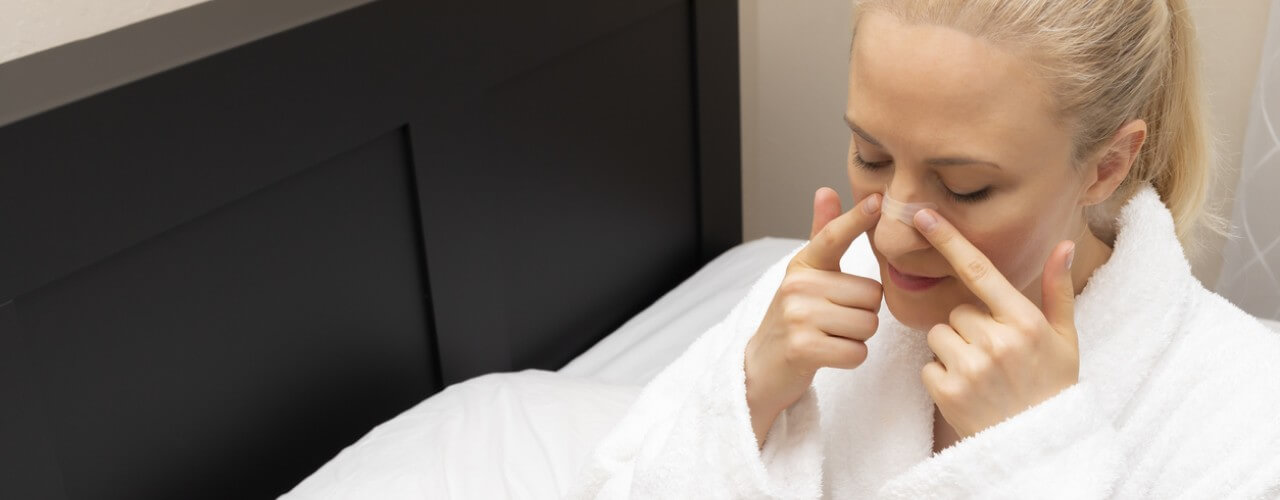Nasal Snoring Treatment: Options to Breathe & Sleep Better
Persistent snoring can disturb your sleep, affect your health, and even place a strain on relationships. While occasional snoring is common, when it becomes frequent or disruptive, it may signal an underlying problem that needs attention. Nasal blockages are a frequent cause of snoring, and the good news is that targeted nasal snoring treatment can offer real improvements.
Understanding the causes of nasal snoring and the available treatment options can help you take the first step towards quieter nights and better overall wellbeing.
Understanding the Causes of Nasal Snoring
Snoring occurs when the flow of air through the mouth and nose is partially blocked during sleep. This causes the tissues of the airway to vibrate, creating the familiar sound. When the blockage is primarily in the nose, it is referred to as nasal snoring.
Common reasons for nasal snoring include:
- Nasal congestion: Allergies, colds, or sinus infections can cause swelling in the nasal passages, making breathing difficult during sleep.
- Deviated nasal septum: A bend in the thin wall between the nostrils can reduce airflow, contributing to snoring.
- Nasal polyps: These non-cancerous growths inside the nasal passages can obstruct airflow.
- Structural abnormalities: Enlarged turbinates or narrow nasal valves can limit the amount of air entering the nose.
Identifying the cause of nasal obstruction is key to choosing the most effective nasal snoring treatment.
When to Seek Help for Snoring
Not all snoring requires medical intervention, but certain signs suggest it is time to seek professional advice. You should consider speaking to an ear, nose and throat specialist if:
- Snoring is loud and persistent, occurring most nights
- Breathing seems to stop during sleep, often noticed by a partner
- You feel excessively tired during the day despite getting enough sleep
- You experience frequent morning headaches or a dry mouth
- Nasal congestion is constant and affecting your breathing even during the day
These symptoms may suggest obstructive sleep apnoea or other conditions that need careful assessment and treatment.
Non-Surgical Nasal Snoring Treatment Options
For many patients, non-surgical approaches can significantly improve nasal airflow and reduce snoring. Treatment recommendations will depend on the specific cause of the nasal blockage.
Nasal Decongestants and Sprays
Temporary nasal congestion caused by colds, allergies or sinus infections can often be relieved using:
- Saline sprays: Help to moisturise and clear the nasal passages
- Steroid nasal sprays: Reduce inflammation inside the nose, commonly used for allergic rhinitis
- Decongestant sprays: Shrink swollen blood vessels, improving airflow
It is important to use decongestants cautiously, as prolonged use can cause a rebound effect, making congestion worse over time.
Allergy Management
If allergies are contributing to nasal obstruction, controlling the allergic response can make a big difference. Strategies include:
- Identifying and avoiding triggers such as pollen, dust mites, or pet dander
- Taking antihistamines or using prescribed nasal sprays
- Keeping the home environment clean and free of allergens
Addressing allergic causes not only eases snoring but can also improve overall respiratory health.
Nasal Dilators
Simple devices such as external nasal strips or internal dilators can help to physically widen the nostrils during sleep, improving airflow. They are a non-invasive, low-risk option for individuals whose snoring is primarily caused by slight nasal collapse or mild congestion.
Nasal dilators are easy to use and may offer a practical solution, especially when used alongside other treatments.
Surgical Nasal Snoring Treatment Options
For individuals with structural abnormalities or persistent nasal blockage that does not respond to medical treatments, surgical options may provide long-term relief.
Septoplasty
A deviated nasal septum can severely restrict airflow through one or both sides of the nose. Septoplasty is a surgical procedure that straightens the septum, improving breathing and reducing snoring. It is typically performed under general anaesthetic and has a high success rate.
Turbinate Reduction
The turbinates are structures inside the nose that help to humidify and filter air. When they become enlarged, they can obstruct airflow. Turbinate reduction surgery carefully reduces their size while preserving their important functions.
Several methods are available, including:
- Radiofrequency reduction
- Submucosal resection
- Laser-assisted procedures
The choice of technique will depend on the severity of the enlargement and your individual anatomy.
Nasal Polyp Removal
Nasal polyps can block airflow and contribute to significant snoring. Endoscopic surgery allows specialists to remove polyps and restore clearer nasal breathing. If polyps are linked to underlying conditions such as chronic sinusitis or allergies, ongoing management may be needed to prevent recurrence.
Nasal Valve Surgery
The nasal valve is the narrowest part of the nasal airway and plays a major role in breathing. Weakness or collapse of the nasal valve during sleep can cause significant airflow restriction. Surgical procedures can reinforce the nasal valve, helping to maintain better airflow and reduce snoring.
Supporting Strategies for Better Sleep
In addition to targeted nasal snoring treatment, certain lifestyle adjustments can enhance the effects of medical or surgical interventions:
- Maintain a healthy weight: Excess weight, particularly around the neck, can increase airway resistance.
- Sleep on your side: Sleeping on your back encourages the tongue and soft tissues to collapse backward, worsening snoring.
- Establish a regular sleep routine: Good sleep hygiene supports more restful sleep and can reduce the severity of snoring.
- Limit alcohol before bedtime: Alcohol relaxes the muscles of the airway, making snoring more likely.
Making these changes alongside medical treatment can offer the best chance of achieving lasting improvements.
Why Addressing Nasal Snoring Matters
Snoring is often thought of as harmless, but persistent snoring linked to nasal blockage can lead to fragmented sleep, daytime fatigue, and even increased health risks over time. It can also place stress on relationships, especially when sleep disruption affects both the snorer and their partner.
Effective nasal snoring treatment not only improves sleep quality but can also have a positive impact on general health, energy levels, and emotional wellbeing. Addressing snoring early can prevent minor issues from escalating and help you regain control over your sleep and breathing.
Take the First Step Towards Better Sleep
If snoring has become a frequent or disruptive part of your life, seeking advice from an experienced ear, nose and throat specialist is an important step. Early assessment and a tailored treatment plan offer the best prospects for restful nights and refreshed mornings.
If nasal snoring is affecting your nights or your quality of life, professional support is available. Contact Harley Street ENT Clinic today to arrange a consultation with our experienced specialists. Whether you need help managing congestion, correcting structural issues, or exploring personalised treatment options, our team is here to support you in achieving better breathing and more peaceful sleep.












